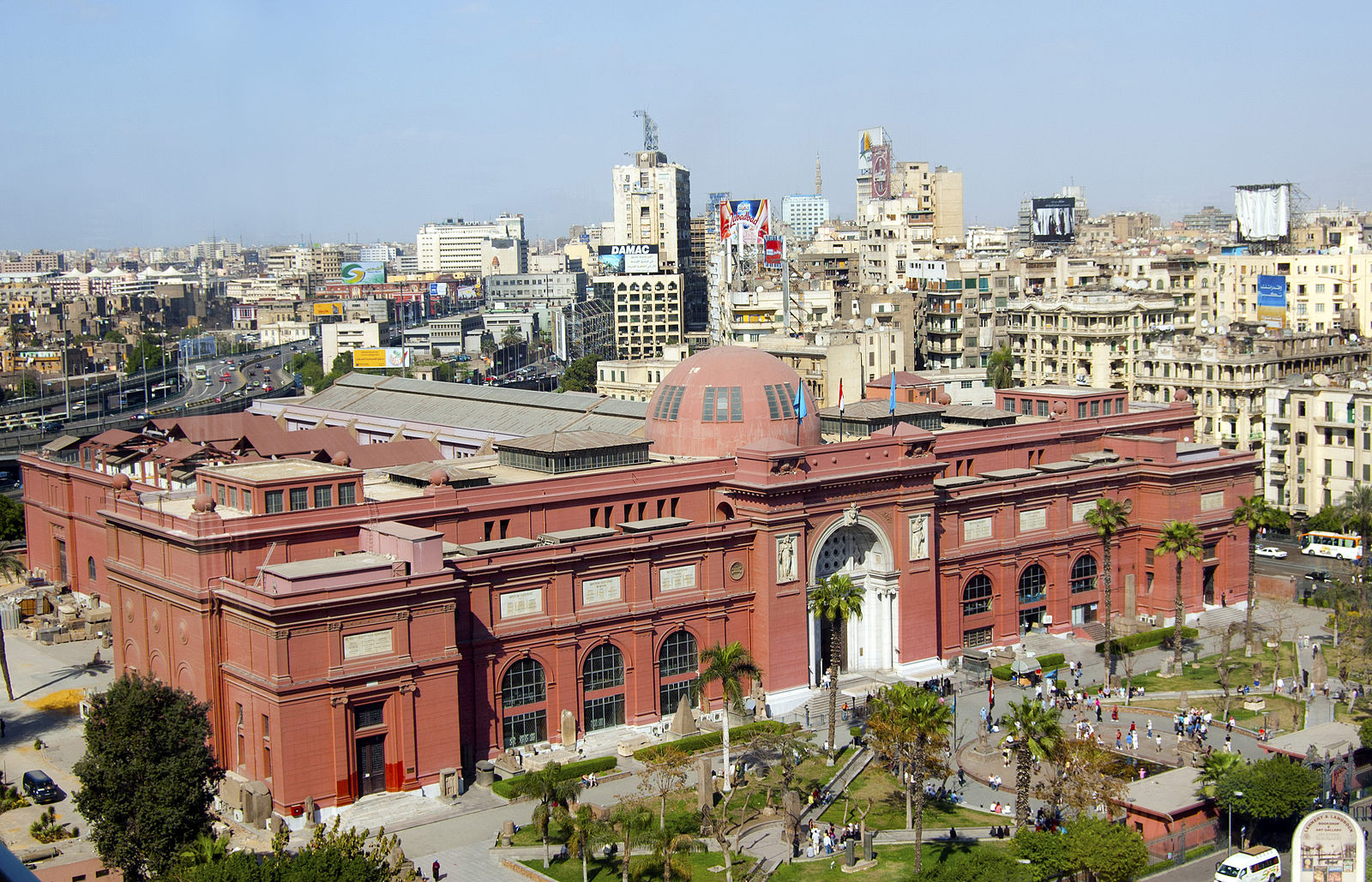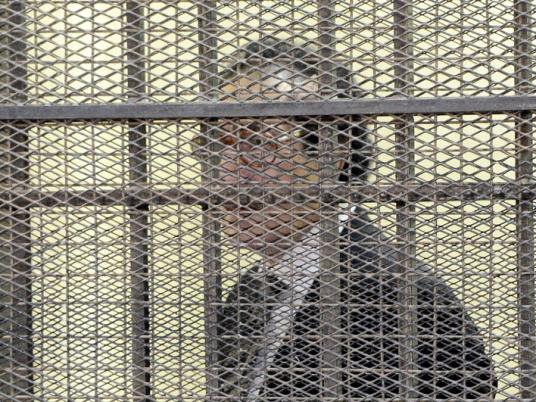With international pressure mounting on Egypt’s Culture Minister Farouk Hosny’s bid to become the first Arab head of UNESCO – the United Nations top cultural organization – the road to Paris is getting harder to maneuver. Hosny sat down with Joseph Mayton at his Zamalek office to discuss the ongoing controversies facing the embattled minister.
Relaxing in the fine furniture in the upscale office, the minister stretches his legs and steadies himself for the questions that come. He understands the importance of politics, especially after years of controversy catching up with him as he bids to take over the UN’s top culture position. A number of international critics, including Israel and the United States, have accused Hosny of anti-Israeli sentiments and anti-Semitism in their campaign against the minister’s election to the UN post this fall.
It doesn’t worry the minister, who has garnered the support of the entire Arab world – Morocco had put forth a candidate for the position, but retracted the nomination in favor of Hosny earlier this year – because he feels he is well-suited for the world’s culture leader.
In late May, Hosny wrote an op-ed piece in France’s Le Monde newspaper, where he explained his past statements and apologized for his actions, in what many have called an attempt to achieve American and Israeli support for his nomination.
“I felt very oppressed because what was said was not true,” the minister states in reference to why he wrote the Le Monde article. “I was responding to the accusations in order to clarify my position because I didn’t mean what they accused me of and [I did it] to correct the image in order to be understood.”
The criticism the minister is referring to is a campaign the Jewish Diaspora, the United States and Israel have been wrangling against his candidacy, arguing he is not equipped to deal with the international community. The Bush administration allegedly requested Egypt reconsider the minister’s nomination.
“Farouk Hosny is the opposite of a man of peace dialogue and culture, he is a dangerous man who inflames hearts and spirits,” an open letter signed by filmmaker Claude Lanzmann, French philosopher Bernard-Henri Levy and Nobel Prize winner Elie Wiesel. “We invite all countries dedicated to liberty and culture to take the initiatives necessary to avert this threat and avoid the disaster that would be his nomination.”
But, the apology the minister says was “very well received by many countries.”
Current American President Barack Obama has not spoken to the issue and most commentators feel the president is unlikely to oppose Hosny’s nomination as did his predecessor.
The question of whether the world is ready for an Arab, and Muslim, to take the helm of the United Nations education, scientific and cultural organization has been on Egyptian and Arab minds since Hosny’s candidacy was announced last year.
Striking off much of the criticism from Washington and Tel Aviv were comments made by Hosny in May of last year, when he said in front of Egypt’s Parliament that he “would burn Israeli books himself if found in Egyptian libraries.”
As a result of these comments, Israeli officials, including the Ambassador to Egypt, Shalom Cohen, demanded that Hosny’s candidacy be revoked and threatened to take the case against Hosny to its global allies.
Quick to dispel the myths that he is against the universality of culture, Hosny says global culture is a vital aspect of all humanity: “I am a firm believer of cultural pluralism and diversity and I believe that cultural pluralism is the spirit of humanity.”
Unlike many Arab leaders, Hosny is not afraid to speak his mind, which in the past has put him under the microscope of controversy.
“Of course it is a very severe campaign against me and I wonder why they are doing this,” the minister begins, “I respect all religions and I even respect the beliefs of the so-called non-celestial religions [such as Buddhism and Hinduism]. This is why I feel that they are creating a point of conflict between religions.”
He argues that the main reason behind the international campaign against him is that Israel does not want “an Arab or a Muslim, so I feel that this campaign is hateful and it creates a conflict between the north and the south.”
But, inside Egypt Hosny has a lot of critics, including renowned author Alaa Al Aswany, who argues that the minister’s corruption over the past two decades should be taken into account.
“He is full of corruption and his actions as culture minister have not been great,” Aswany said over the phone. He added that “I do not support his candidacy because of the manner he has treated this institution.”
Hosny points to the fact that Europe is currently talking of diversity and an “alliance of civilizations,” but has failed in their promised goals.
“Ironically enough, Europe is speaking about the alliance of civilizations and the dialogue amongst civilizations, but some of the Jews, not all of them of course, do not want this to happen,” he says referring to his nomination and the almost constant pressure from Jewish groups worldwide.
The question of change is always a subject that brings controversy. Hosny believes that his overall worldview has changed little since taking public life over two decades ago. The minister says he is a “cosmopolitan” man at heart and his past represents this.
“I was born in a cosmopolitan city, Alexandria, and I worked in Paris and Rome. In these places I proved to be open to any ideas. During the past 20 years I haven’t changed much, because I have been a firm believer in opening doors with all peoples and ideas.”
A strident promoter of his work as minister, Hosny points to the ministry of culture as a means of looking at who he is as a cultural leader.
“If you look at the ministry and what it has accomplished, this is evidence of who I am and what I would bring to UNESCO. Openness, liberalism, anti-fundamentalism and freedom in everything, so you have to assess me in this framework,” the minister argues.
George Ishaq, a leading activist, believes that although it would be a great opportunity for Egypt to have someone in a position of international stature, the facts on the ground, to him, reveal Hosny should not be the person to take the job.
“He talks about openness and all these great things, but when it comes to promoting Egyptian artists and writers, he has failed to really do anything,” Ishaq says.
As to whether the accusations from Israel and Jewish groups across the globe will gain speed and weight, Hosny believes Europe, the new administration in Washington and others, will see through the war of words and send him to Paris.
“I want not only the Egyptian people, but also all the Arab people and also the African people to support me in my campaign for UNESCO because we have to be one unit in order to meet the challenge of these people who are working against me and making a barbarian attack against me. That is why I depend on the support of them and people of peace from around the globe.”
The question now is whether it will be enough to see Hosny make a new home in Paris.
EgyptFeatures/Interviews


